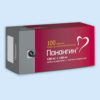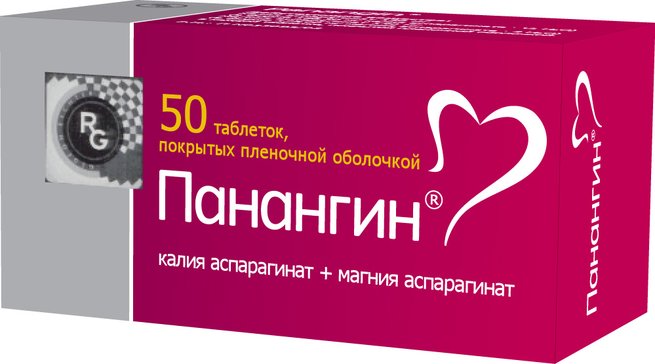pharmachologic effect
A drug that affects metabolic processes. Source of potassium and magnesium ions.
Potassium and magnesium are intracellular cations that play a major role in the functioning of many enzymes, in the formation of bonds between macromolecules and intracellular structures, and in the mechanism of muscle contractility. The intra- and extracellular ratio of potassium, magnesium, calcium and sodium ions affects the contractility of the myocardium. Endogenous aspartate acts as a conductor of ions: it has a high affinity for cells, due to the slight dissociation of its salts, ions in the form of complex compounds penetrate into the cell. Potassium and magnesium aspartate improves myocardial metabolism. The lack of potassium and / or magnesium ions predisposes to the development of arterial hypertension, atherosclerosis of the coronary arteries and the occurrence of metabolic changes in the myocardium.
One of the most important physiological functions of potassium is to maintain the membrane potential of neurons, myocytes, and other excitable structures of myocardial tissue. An imbalance between the intra- and extracellular potassium content leads to a decrease in myocardial contractility, the occurrence of arrhythmias, tachycardia and an increase in the toxicity of cardiac glycosides.
Magnesium is an important cofactor in over 300 enzymatic reactions, including energy metabolism and synthesis of proteins and nucleic acids. In addition, magnesium plays an important role in the work of the heart: it improves contractility and heart rate, leading to a decrease in myocardial oxygen demand. Decreased contractility of smooth muscle myocytes of the walls of arterioles, incl. coronary, leads to vasodilation and to increased coronary blood flow. Magnesium has an anti-ischemic effect on myocardial tissue.
The combination of potassium and magnesium ions in one preparation is justified by the fact that potassium deficiency in the body is often accompanied by magnesium deficiency and requires simultaneous correction of the content of both ions in the body. With the simultaneous correction of the levels of these electrolytes, an additive effect is observed (low levels of potassium and / or magnesium have a proarrhythmogenic effect), in addition, potassium and magnesium reduce the toxicity of cardiac glycosides without affecting their positive inotropic effect.
Indications
as part of the complex therapy of heart failure, acute myocardial infarction, cardiac arrhythmias (mainly ventricular arrhythmias, as well as arrhythmias caused by an overdose of cardiac glycosides);
to improve the tolerance of cardiac glycosides;
replenishment of the deficiency of potassium and magnesium with a decrease in their content in the diet.
Method of administration and dosage
For oral administration.
Assign 1-2 tab. 3 times / day The maximum daily dose is 3 tab. 3 times / day
The drug should be used after meals, because the acidic environment of the contents of the stomach reduces its effectiveness.
The doctor determines the duration of therapy and the need for repeated courses individually.




Reviews
There are no reviews yet.